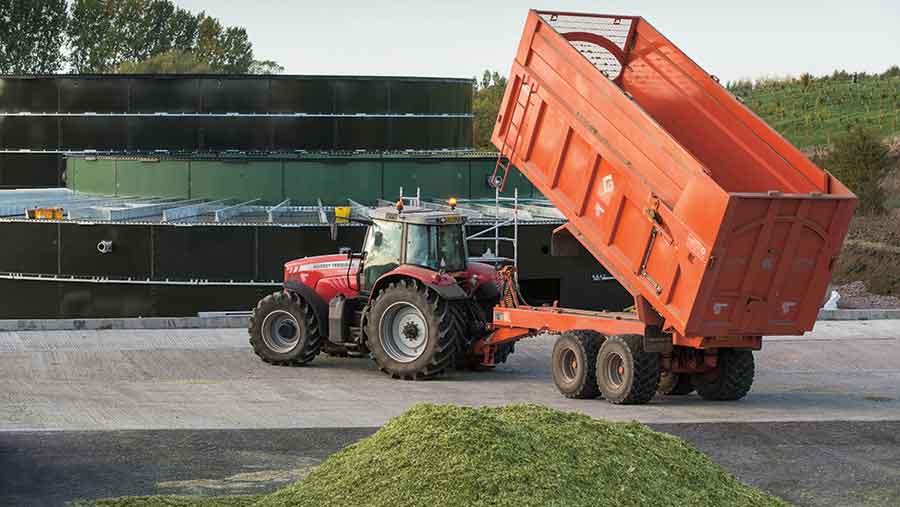Green gas could earn premium for farm AD operators
 © Tim Scrivener
© Tim Scrivener Increasing activity in the biomethane market is creating opportunities for operators of farm-based anaerobic digestion plants to add value to gas generated.
Energy company Npower is developing a scheme to buy “green gas” from UK suppliers and pipe it through the interconnected gas main to their European business customers looking to improve their green credentials.
Gloucestershire-based rural consultancy firm Butler Sherborn is working with Npower to develop the scheme and promote the 10-20% premium over the wholesale gas price offered to suppliers that sign up to the gas purchase agreement. The exact premium will vary depending on feedstocks and associated carbon footprint, with waste-based feedstocks favoured.
See also: UK biogas up 30 in a year but growth slows
Although biomethane becomes inseparable from conventional gas once injected into the grid, there will still be a physical delivery of gas to end-users, making it more than a paper-trading exercise, says Butler Sherborn energy consultant Richard Palmer.
Gas producers must register for and meet sustainability criteria of the International Sustainability & Carbon Certification body, but this should not pose many issues for most RHI-compliant plants, he says. Audit costs will be covered by Npower.
The offer is available to all plants. The average biogas flow rate for gas-to-grid plants is around 800-1,200cu m/hour.
Gaining momentum
“Compared to the UK, the Dutch are more advanced in their corporate and social responsibility for energy, but interest in green gas is gaining momentum across Europe and projects like this may stimulate the UK market.”
He acknowledges opportunities for price premiums on biomethane may be shortlived if it becomes the norm among buyers.
Charles Ward of Newstream Renewables says the UK market for biomethane is becoming more competitive, driven by companies improving their social responsibility and energy suppliers looking to sell a proportion of green gas to consumers.
For example, British-produced biomethane makes up 6% of gas supplied by Good Energy and Ecotricity sources about 5% of all gas from existing UK AD plants. Ecotricity’s Stuart Brennan says this will increase to 10% this year.
Small market
“The biomethane market is still relatively small, but it is increasing and will continue to, especially as the government has a target to source 12% of heating from renewable energy by 2020. The UK is currently at 5%, so is well short of that target,” he says.
UK biomethane trading is done through fixed or variable gas purchase agreements (GPAs) and Green Gas Certificates, which are bought by companies, with proceeds going to the gas generator. The value of certificates (sold with accompanying gas supply) varies significantly, currently from £1.20/MWh to £2.20/MWh, says Mr Ward.
While most opportunities are for plants connected to the gas grid, those off-grid may still be able to trade biomethane by tankering gas from the plant to a local grid injection point, he adds. “There’s the added cost of transport, so the economics of doing this depend on the value of gas certificates and RHI.”
Last year Ecotricity launched a scheme to find sites to build and operate its own AD plants. Planning applications have been submitted for two sites: one near Fiddington, Gloucestershire, and another at Sparsholt College, Hampshire. The first Sparsholt application was rejected by planners due to traffic concerns, but a revised application was submitted in July.
